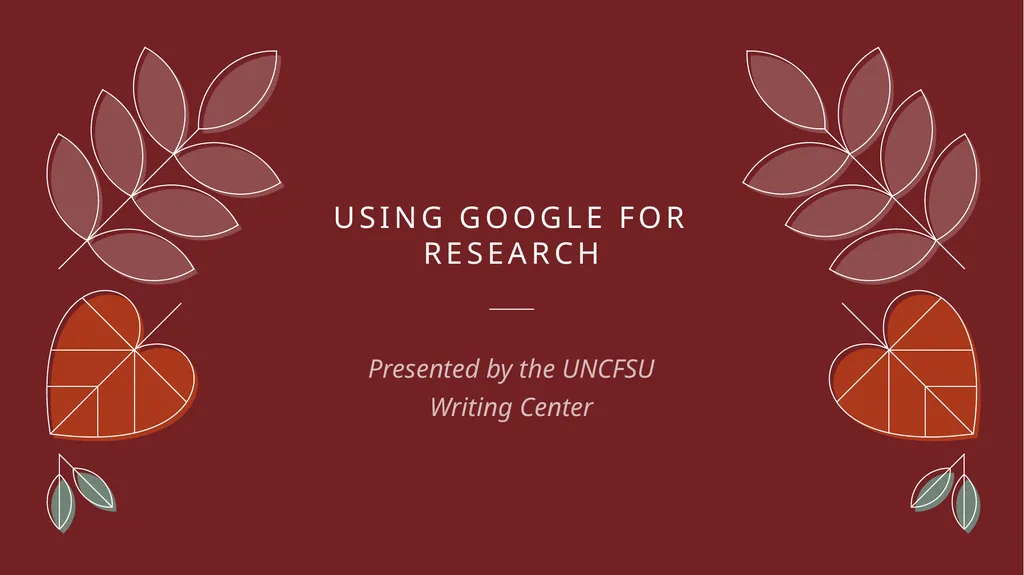
Author : marina-yarberry | Published Date : 2025-05-19
Description: Using Google for Research Presented by the UNCFSU Writing Center Questions you might have How do search engines work? What is Google Help? What is the advanced search? What is Google Scholar? What do my search results mean? What you need toDownload Presentation The PPT/PDF document "" is the property of its rightful owner. Permission is granted to download and print the materials on this website for personal, non-commercial use only, and to display it on your personal computer provided you do not modify the materials and that you retain all copyright notices contained in the materials. By downloading content from our website, you accept the terms of this agreement.
Here is the link to download the presentation.
"Using Google for Research Presented by the UNCFSU"The content belongs to its owner. You may download and print it for personal use, without modification, and keep all copyright notices. By downloading, you agree to these terms.












